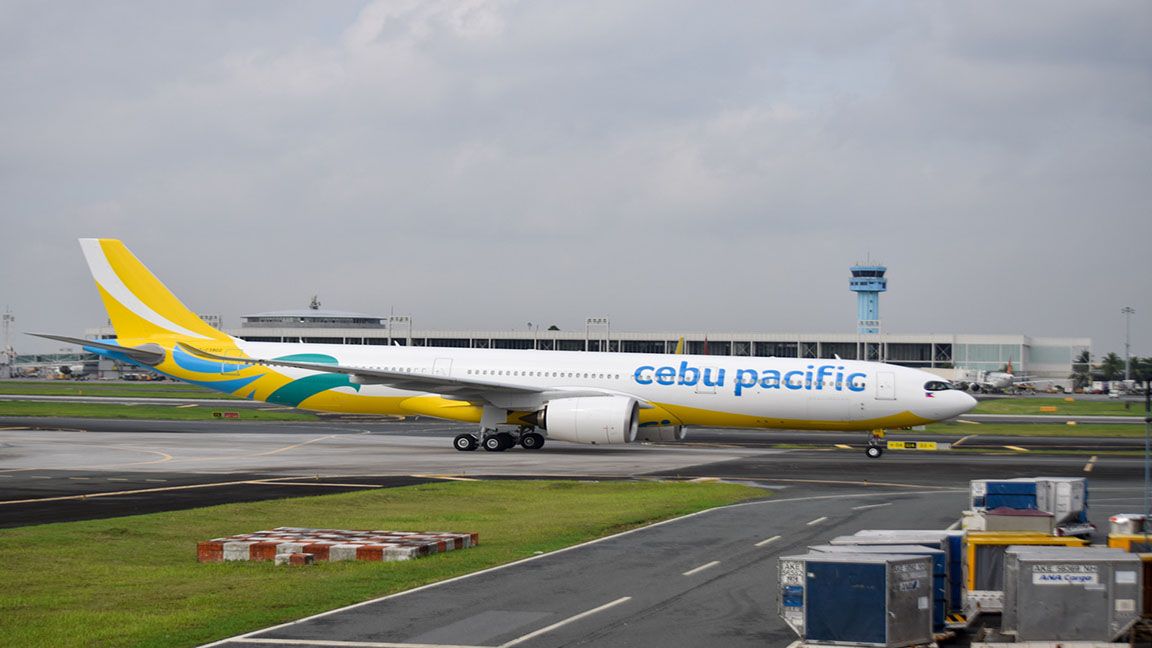Budget carrier Cebu Pacific (CEB) became the first Philippine carrier to use sustainable aviation fuel (SAF) which can reduce 80 percent carbon emission.
Cebu Pacific (CEB) signed a long-term strategic partnership with Shell Eastern Petroleum (SEP) in Singapore to increase the supply of sustainable aviation fuel (SAF) which can help reduce carbon emission.
CEB became the first Philippine carrier to incorporate SAF in its commercial operations on its Wednesday's maiden SAF flight with an Airbus A321neo, using 35 percent blended SAF produced by Neste and supplied by SEP.
CEB said it collaborated SEP to make SAF more widely available, "demonstrating the two parties' commitment to decarbonization and sustainability."
The Memorandum of Understanding (MOU), the airline said, explores the supply and purchase of SAF in Asia-Pacific and the Middle East, with an initial supply volume of at least 25 kilotons per year. Using SAF results in up to 80 percent reduction in carbon emissions over the fuel's life cycle. SAF does not require any adaptations to the aircraft or engines and does not have any negative impact on performance or maintenance.
"SAF will help the aviation industry reduce its carbon emissions, said Alex Reyes, Chief Strategy Officer at CEB. "We encourage more producers to increase the supply of SAF in the region. Our first passenger flight using SAF is a culmination of months of cooperation with valued partners and is an important component of our sustainability program."
The send-off event at Singapore's Changi International Airport Terminal 4 was marked with Filipino festivities to showcase Philippine culture and celebrate an important milestone in Cebu Pacific history, according to the airline.
SAF is a "drop-in" replacement for fossil fuels made of 100 percent renewable waste and raw materials, such as used cooking oil and animal fat waste. The chemical and physical characteristics of SAF are almost identical to those of conventional jet fuel, and these can be safely mixed with regular jet fuel to varying degrees.
Several foreign carriers using SAF fuel to its operations are Hainan Airlines of China since March 2015; Alaska Airlines, June and November 2016; Braathens Regional Airlines of Sweden started using SAF in February 2017. Also, airlines such as SAS (Scandinavian Airlines), Lufthansa, Qantas, and United, among others have used SAF. According to International Air Transport Association (IATA), over 370,000 flights with SAF in the fuel mix have taken off since 2016 alone.
The local carrier quoting Shell Aviation President Jan Toschka, the agreement is testimony to the growing demand in the Asia Pacific region and ready to meet that need.
Toschka added,
"We are excited to work with Cebu Pacific in this five-year collaboration as we both believe that SAF is the best option available now for aviation to decarbonize by 2050."
CEB used SAF for the first time in May on a delivery flight of a brand new Airbus A330neo from France to the Philippines.
CEB will take delivery of one more A330neo in November and one A320neo aircraft in December. As part of the airline's sustainability efforts, it aims to transition to an all-NEO fleet by 2028 and incorporate the use of blended SAF for its entire commercial network by 2030.
Tags: #sustainableaviationfuel, #helpreducecarbonemission, #supplyandpurchase, #cebupacific #shellaviation

